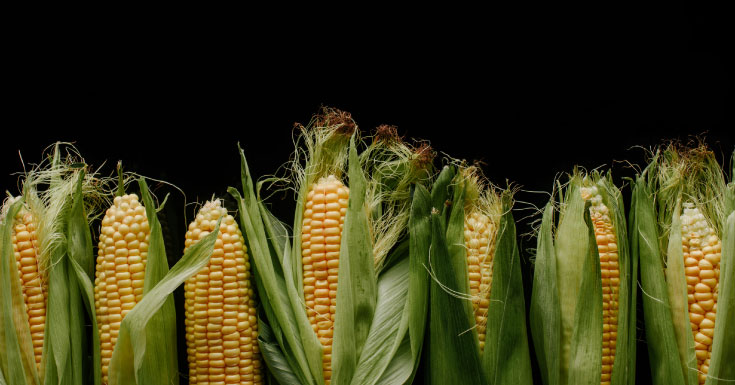There have been so many negative press about corn in the past that even if you’re not particularly savvy about food and nutrition, there’s bound to be some doubt when it comes to the health benefits of corn, if any. Today is the day we bust those myths once and for all so you can have your corn cake and eat it too!
Over the years, people around the world began to question if corn was healthy. Rumors have sprung up about everything from how corn is grown (re: genetically modified) to its nutrient content and how fattening it may be, etc. Let’s take a look at some of the biggest myths about this sweet, delicious produce called corn.
Most of the corn we eat are genetically modified
When it comes to corn originating from the U.S, only a small percentage of sweet corn grown there is genetically modified, according to the USDA. Most of the GMO corn is used in high-volume produced processed foods like corn chips, breakfast cereals, high-fructose corn syrup and corn oil, or turned into livestock feed and ethanol.
If you’re concerned about GMO corn, choose USDA-certified organic corn. Or, you can find out more about how the corn you intend to buy was grown by inquiring from the vendors at your local farmers’ market. GMO crops are banned under USDA-certified organic standards. By the way, did you know that sweet corn made the Environmental Working Group’s 2018 “Clean Fifteen” list of foods least likely to have pesticide residue?
Eating corn everyday will make you fat
That really depends on how you eat the corn – saturate a cup of corn with loads of butter and top if off with other high-calorie toppings and yes, a daily consumption will cause you to gain some weight. On its own however, one plain ear of corn has about 100 calories, similar to an apple. And with a high dose of fiber (3 grams per serving), corn helps you feel satiated for longer, and you’ll be less likely to snack on high calorie foods that will more likely make you gain weight. Corn is also known to contain resistant starches, a slow-to-digest type of carbohydrate that’s been shown to help with weight control.
Corn has a high sugar content
Although corn is categorised as a sweet vegetable, there is only 6 grams of (natural) sugar in a medium-size ear of corn. An ear of sweet corn has less than half the sugar of a banana and only about one-third the sugar of an apple.! Even beets, a superfood that boasts numerous health benefits, contain more sugar per serving compared to the humble, misunderstood corn.
The high-sugar corn myth may be partly due to some long-standing confusion over corn-based products, one of them being high-fructose corn syrup, dextrose, glucose and other as well as sweeteners are derived from field corn. Field corn is known as an inedible commodity crop which is used mainly to make food for livestock and ethanol. Those highly processed sweeteners are nothing like the natural sugars found in sweet corn, which is a wholesome, natural vegetable. If you are concerned about sugar intake from corn, then stay away from corn-based products that have ingredients that you can’t even pronounce – instead, enjoy corn the way it’s meant to be eaten – lightly cooked (grilled, steamed, etc.)
Corn is just a carb-rich food with little nutrients
This must be the silliest myth of them all, for corn, like all other natural produce, is loaded with essential nutrients that are beneficial for your health! For starters, corn is rich in lutein and zeaxanthin, two phytochemicals that promote healthy vision. Besides helping with weight loss, the insoluble fiber in corn also serves to feed the colonies of good bacteria in your gut, which aids in digestion, helps keep you regular, and ultimately, helps keep your immunity up. And then there’s the B vitamins, iron, protein and potassium too. So, do you still think that corn isn’t a healthy, nutritious food?
Cooking corn will kill off its nutrients
On the contrary, the heat of cooking will actually boosts the nutritional benefits of corn. In one study, researchers found that while sweet corn may lose some of its vitamin C during cooking, its antioxidant activity increases. Eating foods high in antioxidants can help lower your risk of heart disease as well as Alzheimer’s disease, cataracts and other health problems linked to aging. Cooked sweet corn also has a surprising amount of ferulic acid, a type of compound that helps fight cancer.
















